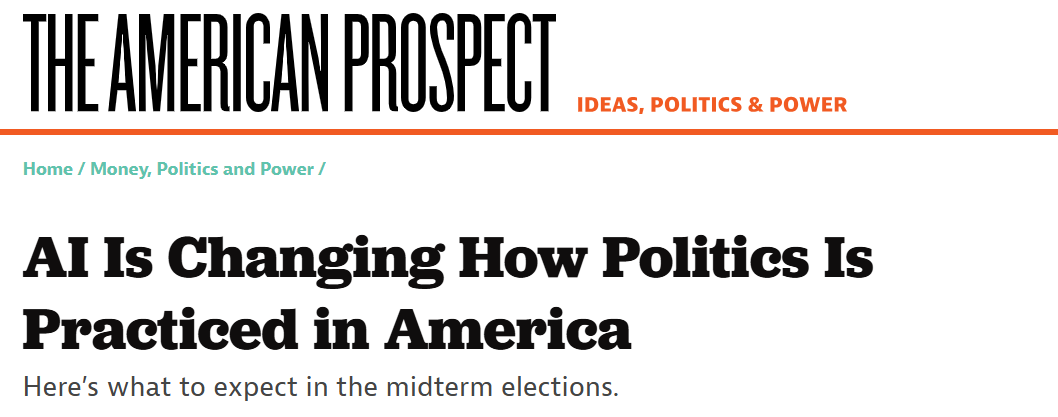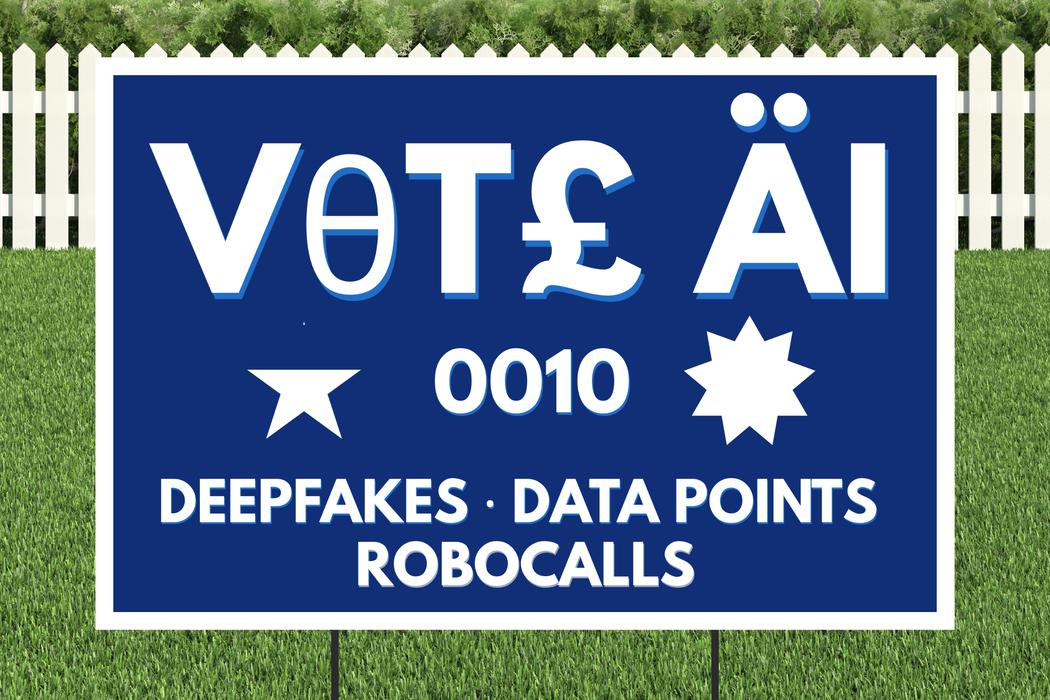AI Is Changing How Politics Is Practiced in America
 https://prospect.org/power/2025-10-10-ai-artificial-intelligence-campaigns-midterms/
https://prospect.org/power/2025-10-10-ai-artificial-intelligence-campaigns-midterms/

Two years ago, Americans anxious about the forthcoming 2024 presidential election were considering the malevolent force of an election influencer: artificial intelligence. Over the past several years, we have seen
plenty of warning signs from elections worldwide demonstrating how AI can be used to propagate misinformation and alter the political landscape, whether by
trolls on social media,
foreign influencers, or even a
street magician.
AI is poised to play a more volatile role than ever before in America’s next federal election in 2026. We can already see how different groups of political actors are approaching AI. Professional campaigners are using AI to accelerate the traditional tactics of electioneering; organizers are using it to reinvent how movements are built; and citizens are using it both to express themselves and amplify their side’s messaging. Because there are so few rules, and so little prospect of regulatory action, around AI’s role in politics, there is no oversight of these activities, and no safeguards against the dramatic potential impacts for our democracy.
The Campaigners
Campaigners—messengers, ad buyers, fundraisers, and strategists—are focused on efficiency and optimization. To them, AI is a way to augment or even replace expensive humans who traditionally perform tasks like personalizing emails, texting donation solicitations, and deciding what platforms and audiences to target. This is an incremental evolution of the computerization of campaigning that has been underway for decades. For example, the progressive campaign infrastructure group Tech for Campaigns
claims it used AI in the 2024 cycle to reduce the time spent drafting fundraising solicitations by one-third.
If AI is working well here, you won’t notice the difference between an annoying campaign solicitation written by a human staffer and an annoying one written by AI. But AI is scaling these capabilities, which is likely to make them even more ubiquitous. This will make the biggest difference for challengers to incumbents in safe seats, who see AI as both a tacitly useful tool and an attention-grabbing way to get their race into the headlines.
Jason Palmer, the little-known Democratic primary challenger to Joe Biden, successfully won the American Samoa primary while extensively leveraging AI avatars for campaigning.
snip

